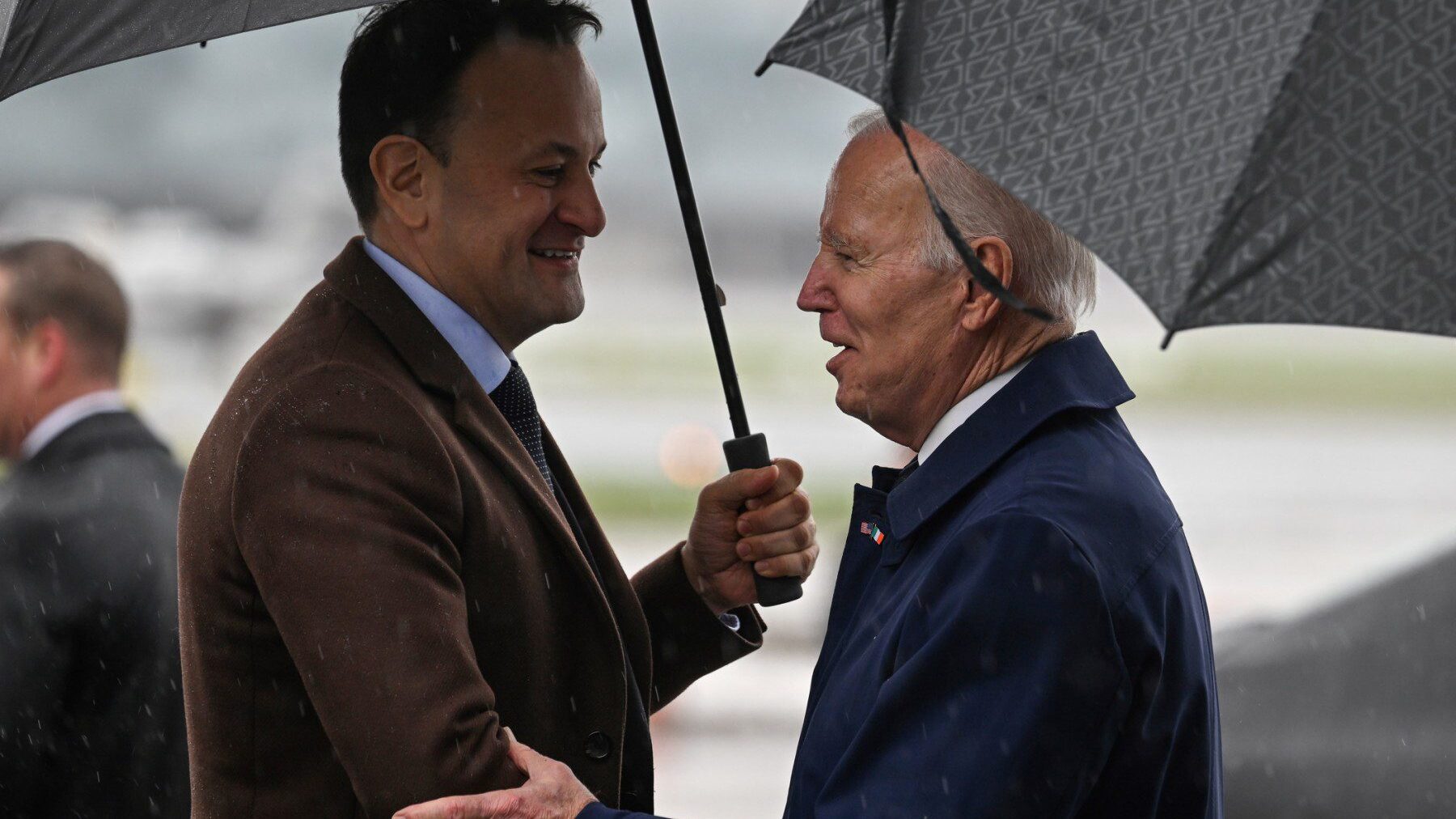
U.S. President Joe Biden is welcomed by Ireland’s Prime Minister Leo Varadkarupon arrival at the Dublin International airport, on April 12, 2023.
Photo by Jim WATSON / AFP
President Biden’s five-day state visit to both Northern Ireland and the Republic of Ireland got off to a rocky start after senior Northern Irish unionists accused him of anti-British sentiment. Former leader of the Democratic Unionist Party and Northern Irish First Minister Arlene Foster accused Biden of “hating the UK” and harbouring anti-British sympathies due to his Irish heritage. These remarks were refuted by White House officials.
The President is there to mark the 25th anniversary of the Good Friday Agreement. This was the political deal that ended the thirty-year conflict in the region between Catholics and Protestants in Northern Ireland, colloquially known as the Troubles.
Northern Ireland has been beset by political instability, with Stormont, its regional parliament, suspended over unionist objection to the post-Brexit arrangements between the UK and EU, known as the Windsor Framework, which leaves Northern Ireland partially under the jurisdiction of the EU.
Biden has repeated calls for the restoration of the Northern Ireland parliament. There is speculation that his trip to Northern Ireland helped fast-track the Windsor Framework in February, in anticipation of his visit. The President drew media attention for confusing the British Army with the New Zealand rugby team, and for declaring his support for a unified Ireland in 1980, while a senator.
Biden conducted a one-on-one meeting with UK Prime Minister Rishi Sunak on Wednesday, April 12th, before speaking with the leaders of various Northern Irish parties after which he expressed his hope that the dispute over the Windsor Framework would be resolved. Unionist leader Jeffery Donaldson downplayed comments that Biden was anti-British but added that the President’s visit would not alter the current political impasse within Northern Ireland.
Biden now travels to the Republic of Ireland where he will visit towns associated with his ancestors and meet with Irish political leaders. President of the nationalist party Sinn Féin, formerly associated with the IRA, Mary Lou McDonald said she welcomed Biden’s visit and expected a referendum on Irish unity within the decade.
Sinn Féin is seen as one of the main political beneficiaries of the Good Friday Agreement, which allowed them to become the largest party in both the Republic and Northern Ireland. The party enjoys strong financial backing from Irish-American donors and ties to the Democratic Party.
A relative side issue in global politics, Biden’s heritage does seem to be a partial motivating factor behind his Irish policy outlook. Unlikely to bring about Irish unification anytime soon, Biden’s visit underlines the robust American influence and long-standing relationship with the U.S. Democratic Party regarding post-conflict Northern Ireland.
